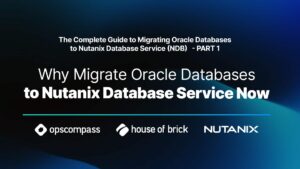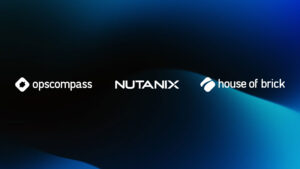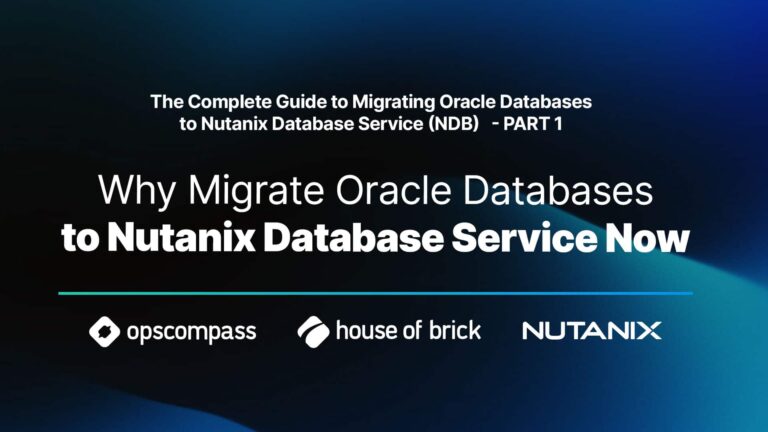Oracle license compliance and management continues to be a very common concern with House of Brick clients. As we have posted in past blogs (see below), Oracle continues to make many false assertions on how customers can deploy Oracle in a virtualized or cloud environment. These misleading statements confuse Oracle customers, who sincerely want to be in compliance with all of their obligations, but many times are unsure how to actually do it.
Dave Welch, a House of Brick executive license consultant, recently posted a video update on Oracle licensing basics and many of the false statements that Oracle may make to their customers. It is a good primer for those who are new to Oracle licensing, or may be concerned with an audit. It is also a nice refresher for those who are interested in some of Oracle’s new audit tactics.
Real-World Oracle License Management Challenges
We currently have a large public-sector client who provides IT services to various departments of the organization. They are dealing the challenges that many organizations have in validating their license compliance. They have been using Oracle technologies for their private cloud deployments, particularly Database Enterprise Edition and WebLogic Middleware. These deployments, which run on Linux/VMware, IBM AIX, and Windows Server comprise the mission critical platform for IT services.
The main challenge is an organization-wide agreement with Oracle that covers multiple divisions and how those divisions’ systems are deployed. Our client acts as a service provider to these divisions to provide division-specific application support for Oracle. In addition, these Oracle deployments require a variety of enterprise database options and packs.
Given the agreement and cross-division support, the organization needed to ensure that their license deployments align to their license entitlements. These annual Oracle support payments currently cost multiple millions of dollars each year. They want to ensure that they could defend their usage in an Oracle audit as well as optimize their ongoing Oracle costs where possible.
Opscompass License Manager Features & Benefits
We use Opscompass License Manager to validate feature usage, monitor VM movement, and alert on non-compliant events—giving you a consolidated compliance dashboard.
Case Study: Implementing Oracle License Management
This client engaged House of Brick to assist the IT team in validating their Oracle deployments, feature usage, and entitlements, and to optimize their annual Oracle expenses. We are using the License Manager features of Opscompass* to validate Oracle database feature usage, monitor VMware virtual machine movement within licensed environments, while ensuring proper usage against license entitlements. We are also using Opscompass License Manager (OLM) to monitor for, and alert the client whenever a non-compliant event occurs in Oracle product usage. The client views the status of all Oracle usage, entitlement, compliance, and event alerts in a consolidated compliance dashboard.
Additionally, we provide an ongoing managed support service using OLM so the organization has periodic assessments, regular compliance reviews, and audit defense support. We also provide valuable education workshops and mentoring to the organization’s various teams to so that all staff understand how to properly procure, deploy and manage their license entitlements, while being prepared for an Oracle audit.
Outcomes: Optimized Oracle License Governance
We are proactively working with our client to determine cost reduction opportunities in their Oracle estate. House of Brick provides a holistic solution of professional and managed services, and SaaS software monitoring. Our services consultants are working with the IT team to identify how to optimize deployments, including the LPAR pool configurations, to reduce ongoing Oracle support costs.
Most importantly, the IT team is now using the OLM features of Opscompass for proper governance of their Oracle license usage across the organization. An IT director at our client commented on how important OLM has become in their daily validation procedures. “We check the OLM dashboard every day to ensure that our DBAs have not accidently started using something that we don’t have a license for,” the client IT director said. “This was never a capability we had before, and we have come to rely heavily on Opscompass.”
Usage of OLM for optimization is important, but even more critical is the ability it provides to avoid unplanned license fees that could range as high as tens of millions of dollars. Opscompass gives our client team new found confidence in the management of their mission-critical systems.
Oracle License Management Best Practices
Be proactive: combine automated monitoring, periodic assessments, clear governance processes, and regular training to stay ahead of audit risk.
Conclusion: Continuous Oracle License Governance
The lesson learned for this and other House of Brick clients is that it is best to be proactive in both knowing and managing Oracle license compliance. Most Oracle customers may feel that they are effectively managing their Oracle deployments, however many may not fully understand their license contracts and associated entitlements.
While many of our clients have done their best with spreadsheets or other methods, it is more effective to find and use a tool that will automatically monitor Oracle software usage against available license entitlement. Human error is real no matter how earnest you are, and Oracle makes it easy for unintended feature usage to happen. House of Brick with the Opscompass License Manager will monitor for such unintended usage so that the customer can fix the issue before it becomes a problem.
Lastly, many software asset management (SAM) tools may track your Oracle installations, but they may not analyze the high-risk components of actual database feature usage. If you want to do more than just track your installations, Opscompass provides our clients with the visibility, intelligence, and control that they need to quickly identify and mitigate risk, and both reduce ongoing cost and prevent unintentional cost penalties from an audit.
If you have any questions in applying this information to your specific Oracle licensing management situation contact us and we will help.
Related Blogs, Podcasts, Video and Data Sheets:
- BLOG: Navigating Oracle Audits – https://houseofbrick.com/navigating-oracle-audits/
- BLOG: Has Your CEO Received a Letter from Oracle Recently? – https://houseofbrick.com/has-your-ceo-received-a-letter-from-oracle-recently/
- BLOG: 7 Pitfalls to Avoid as We Approach Oracle’s End of Fiscal Year –https://houseofbrick.com/7-pitfalls-to-avoid-as-we-approach-oracles-end-of-fiscal-year/
- PODCAST: Oracle Audits in 2021 – A Legal & Technical Perspective – https://houseofbrick.com/oracle-challenges/
- VIDEO: Oracle Software Licensing Basics – Dave Welch – https://www.youtube.com/watch?v=GGXNHFS7TgM
- VIDEO: Opscompass License Manager In Under 5 Minutes – Nathan Biggs – https://www.youtube.com/watch?v=2KNl0vdnCoI
- DATA SHEET: Opscompass License Manager for Oracle – https://houseofbrick.com/resource/opscompass-license-manager-for-oracle/
Frequently Asked Questions
Large‐scale virtualized and cloud deployments often outpace spreadsheet tracking, leading to hidden feature use and unplanned audit fees.
It automatically collects feature-usage data, monitors VM movements across clouds, and triggers alerts on non-compliant events via a unified dashboard.
Combine automated monitoring, scheduled entitlement reviews, governance policies, and staff training to catch issues before an audit.
Yes—Opscompass integrates with on-prem VMware and public clouds (AWS, Azure, GCP, OCI) to track Oracle deployments everywhere.
Clients typically see multi-million-dollar cost reductions, daily compliance confidence, and elimination of surprise audit penalties.







